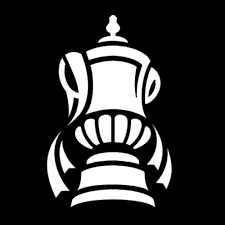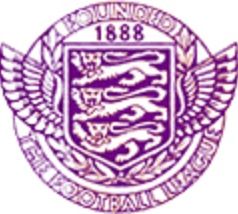Matter(s) of Fact(s)

Facts matter and one, albeit bizarrely almost entirely ignored by the Scottish Football Museum, is that our football had a Golden Era. Moreover, it was one, with small blips caused by failed and therefore eventually passing impositions from the SFA re. professionalism and then residence, that lasted fully sixty years. Indeed, just as today almost fifty percent, more in First Teams, of the players active in the English top-flight are non-English for a large proportion of those six decades for them read Scots. And the reason we know that is counting - in the FA Cup from just a dozen years after its inception in 1871 and the Football League from the day in 1888 that it, on initiation by a Scot, kicked off.
A Cup Run Over
Scots played in the English FA Cup in its very first iteration. At least fifteen of them, four in the Royal Engineer's team that reached the Final plus the eleven in the Queen's Park one that in March 1872 faced The Wanderers in a London-played, drawn semi-final that was not replayed because the Glasgow club could not afford an immediate, second journey south. But that was more or less it for a decade, when in 1882 there were four and half, Arthur Kinnaird and William Anderson for the Old Etonians, the latter Liverpool-born of a Scottish father, and three imports in the losing Blackburn Rovers team, Hugh McIntyre, Fergus Suter and Jimmy Douglas.
And that number was in 1884 to become fifteen or almost seventy percent of the twenty-two on the pitch. Blackburn Rovers was involved once more, this time with four, but this time Queen's Park with a full team was back, having in 1882 re-entered but, probably due to travel difficulties, allowing a First Round walk-over to Grimsby. Moreover, the same scenario would in 1885 be repeated and, whilst the same Scottish total on the Final pitch would never again quite be achieved, twelve being the largest number, on four occasions to 1939 it was over fifty percent, three times before The Great War, once after, on thirteen more occasions it was 30% or more, twelve before WW1, and on nine further occasions, five between the Wars, it was 25% or more.
In total it meant, indeed still means for the record, that from 1884 to 1915 in twenty-one of thirty-two FA Cup Finals twenty-five per cent or more of those on the pitch were Scots-born, never mind the Diasporans, and to 1939 it was twenty-nine of fifty-two, including the remarkable 1937 Sunderland-Preston match with twelve including for the defeated latter Bill Shankly and Jimmy Milne, father of future England international (because he had no choice) Gordon.

A League of its Own
It is said that in today's Premier League non-English, and mostly non-British players, account for more or less fifty percent of the active playing staff. The picture is a little complicated by squad-number rules but is far from a new phenomenon. Just look at the period notably from 1888 to 1915 and substitute "Scots" for "non-English" and an almost exact parallel is there for all to see. In fact, just as now with the top-flight of English football effectively unable to function without continuous refreshment through foreign talent, so it was then and in an era when otherwise it, and global football, was after a hesitant start first formed and then flourished.
Scots first started to play in football South of the Border at least as early as in 1865 with the formation of Old Etonians. The first to arrive from the North was Queen's Park's Robert Smith in 1869. By 1876 that number was five, including the first playing for money. Two years later it was ten, in 1881 twenty but by no means an invasion. But as Scotland would repeatedly beat England at international level and Queen's Park reached the 1884 FA Cup Final te number would by 1885 jump from twenty-eight to seventy-six. We know that because that year not only the SFA did a count but we have also done so just recently. Indeed we have to the best of our ability counted the number of Scots playing in the top-flights of the English and Welsh game annually to 1939. In that year the count was one hundred and seventy-six but that was only fifty-seven per-cent of that it had been. That peak-year total had been 1898-9 when the total had been a staggering three hundred and seven, with the comprehensive, indeed pivotal, "Scotch Professorial" influence from north of Hadrian's Wall such an input of talent, knowledge and experience implies.
But even then the plain figures do not give a complete picture. Whilst, from 1887 and fifty-six Scots players to ninety-six on the foundation the following year of the William McGregor-inspired Football League (FL), totals over a decade increased more than three-fold, so had the number of teams. In 1892 the FL had created a Second Division. 1894 saw the formation of a one division Southern League. The next year it too had become two. Thus, with in 1891 one hundred and eighty-four Scots in the English game and one hundred fifty-two of them in Football League clubs, it had meant a peak average of twelve or half per FL squad, which, as the number of clubs doubled, admittedly fell before steadying at seven or thirty per cent.
But it also meant that, like today, some clubs decided or for financial reasons could only afford the home-grown. effectively English-player route, whilst some did not. In 1898-9 in the Football League Sheffield United had no "foreign" players, Wolves one, West Bromwich two whilst, by contrast, Bolton and Newton Heath (Manchester United) with ten, Preston and Arsenal twelve, Newcastle thirteen, Derby fifteen, Liverpool seventeen, Sunderland twenty-two and in the Southern League Tottenham and Bristol City eleven and fourteen respectively. And as for success. Plus ca change.
Back to the SFHG Home page